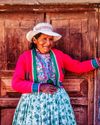
The paradox of our era is that we are hyperconnected through digital media yet increasingly drifting apart from each other and suffer from loneliness because we lack authentic connection. This absence of real connection is epidemic, and medicine is increasingly recognising it as having dire physical, mental and emotional consequences, especially among older adults.
People with fewer social connections have disrupted sleep patterns, altered immune systems, more inflammation, and higher levels of stress hormones. In a 2016 study, isolation was found to increase the risk of heart disease by 29 per cent and stroke by 32 per cent.
Another analysis that pooled data from 70 studies and 3.4 million people found that individuals who were mostly on their own had a 30 per cent higher risk of dying in the next seven years, and that this effect was largest in middle age (younger than 65).
Loneliness accelerates cognitive decline in older adults. The data speaks to me. It tells me to pay attention to nurturing my relationships as much as I nurture my health through diet and exercise.
Picture this
Neuroimaging studies have been particularly revealing in this new area of brain science. A couple of investigations have been carried out by AARP Foundation Experience Corps, a program that links older adults with kids who are not reading at grade level yet. The program aims to be mutually beneficial; it helps older adults engage in the community as tutors, while children learn the skills they need to do well in school.
This story is from the March 2021 edition of The Australian Women's Weekly.
Start your 7-day Magzter GOLD free trial to access thousands of curated premium stories, and 8,500+ magazines and newspapers.
Already a subscriber ? Sign In
This story is from the March 2021 edition of The Australian Women's Weekly.
Start your 7-day Magzter GOLD free trial to access thousands of curated premium stories, and 8,500+ magazines and newspapers.
Already a subscriber? Sign In

Where to go in 2024
Who doesn't love fantasising about their next trip? We've gone for lesser-known locations, and whether you're seeking bright lights, striking natural scenery, serenity or excitement, here's where you're sure to find it.

Money matters with Effie
Didn’t reach your financial goals in 2023? While a new year won’t wipe away pressures like rising costs, there are a few things you can do now to refresh your money mojo in 2024.

Bright stars in a rugged land
The hot, dusty opal fields around Lightning Ridge in outback NSW have traditionally been a man's world. Now The Weekly meets the women who have been struck by opal fever.

The gift of life
Maureen Elliott had just months to live when she went on St Vincent's Hospital's transplant list. Thirty years on she's one of the longest living heart-lung transplant recipients in the world.

An uncaged heart
After more than two years in Iranian jails, Kylie Moore-Gilbert has forged a new life that's brimming with love, and a determination to help others who have been wrongfully imprisoned.

The woman behind The King
As Sofia Coppola's biopic Priscilla readies to hit screens, we look back at the early life and great love of Priscilla Beaulieu Presley.

Say hello to the Cockatoo cake
When we put a call-out to our readers for their best children's cakes we were inundated with recipes, and this clever cockatoo was ahead of the flock.

The French revolution
Dawn French quit her sketch show because she felt so ugly. Now the \"roly-poly comedian\" wants us all to stop fretting about our faults. She talks body image, surviving the 1980s and owning her mistakes.

Trump's women
Will it be the jailhouse or the White House for Donald Trump this year? The women in his life could make all the difference.

Can you buy a good night's sleep?
Forty per cent of Australians have trouble sleeping, and the market has responded with a mind-boggling array of sleep aids. But do any of them actually work? The Weekly goes in search of slumber.